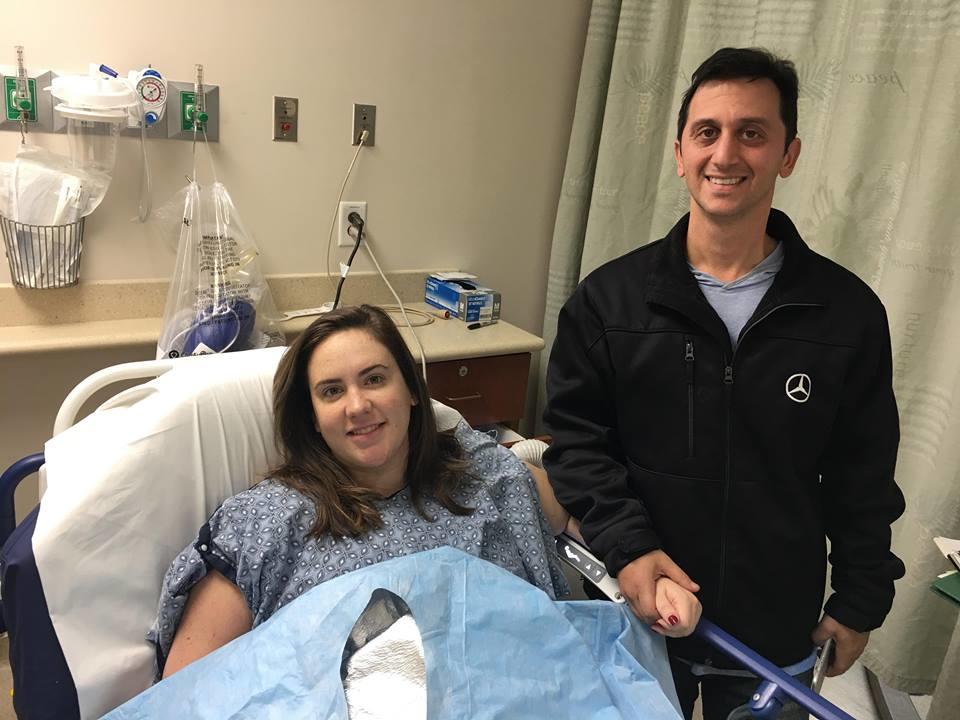Section Branding
Header Content
Breast Implants Recalled After FDA Links To Rare Cancer
Primary Content
The U.S. Food and Drug Administration on Wednesday announced a voluntary recall for textured breast implants that have been connected to rare cancer.
Allergan, the manufacturer of a specific type of breast implant, agreed to recall specific models of its textured breast implants from the U.S. market due to the risk of breast implant-associated anaplastic large cell lymphoma.
Additionally, the FDA issued a safety communication for patients with breast implants, those who are considering implants and their health care professionals. The known risks and methods of monitoring for symptoms of BIA-ALCL are included in the agency’s outline.
In March, Dr. Marisa Lawrence, a plastic surgeon based in the metro Atlanta area, and one of her patients, Lauren Caccavone, submitted comments to the FDA ahead of its public advisory committee meeting of the General and Plastic Surgery Devices Panel of the Medical Devices Advisory Committee, which works to provide advice and recommendations to the agency on FDA's regulatory issues.
Caccavone told the FDA about the research she had been doing on her own to explain the odd illnesses she suffered from after getting one Allergan breast implant to combat her Poland syndrome.
“I kept stumbling across 'breast implant illness' articles, Facebook groups, and Youtube videos,” Caccavone told the FDA. “I was shocked at how many women had shared stories that were extremely similar to what I was going through. They claimed that the body rejects their implant and the immune system tries to attack the sack. They develop autoimmune symptoms, EBV, and CFS/fibromyalgia. They were saying the pain and symptoms were going away after explant and detox.”
RELATED: Illness Caused By Breast Implants, Georgia Women, Plastic Surgeons Tell FDA
While Caccavone did not develop cancer, she remains convinced her Allergan implant caused her illness and continues to work with Lawrence to research the connection between breast implants and systemic illness.
“Perhaps, these women have an allergic predisposition towards even the slightest amount of these metals,” Lawrence told GPB News in March.
The FDA requested that Allergan recall all BIOCELL textured breast implants and tissue expanders marketed in the U.S. based on newly submitted Medical Device Reports reporting worldwide cases of BIA-ALCL and BIA-ALCL-related deaths associated with these devices.
BIA-ALCL is not breast cancer — it is a type of non-Hodgkin’s lymphoma (cancer of the immune system). In most cases, BIA-ALCL is found in the scar tissue and fluid near the implant, but in some cases, it can spread throughout the body.
FDA Principal Deputy Commissioner Amy Abernethy said the FDA first identified the possible association between breast implants and ALCL in 2011.
“Although the overall incidence of BIA-ALCL appears to be relatively low, once the evidence indicated that a specific manufacturer’s product appeared to be directly linked to significant patient harm, including death, the FDA took action to alert the firm to new evidence indicating a recall is warranted to protect women’s health,” Abernathy said.
As the conversation has continued and the science has continued to develop, the FDA has been monitoring the reports in databases, including external patient registries and in scientific literature.
“Based on new data, our team concluded that action is necessary at this time to protect the public health,” Abernathy said. “We will continue to monitor the incidence of BIA-ALCL across other textured and smooth breast implants and tissue expanders as well as other devices intended for use in the breast. If action is needed in the future, we will not hesitate to do what is necessary to protect patients.”
Lawrence is continuing her research in Georgia into any systemic reactions from breast implants, focused on whether an infection was triggering the women’s immune systems.


